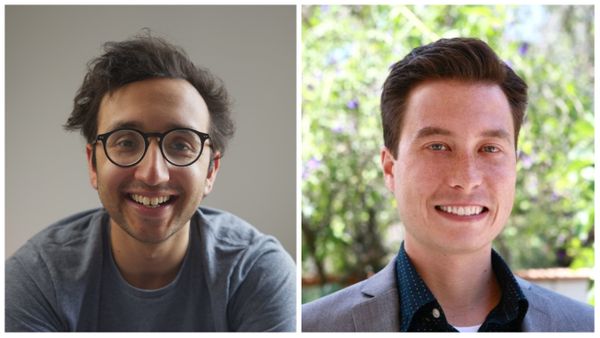Table of contents
Tiago is one of the world's foremost experts on productivity. Through online courses and live workshops, he has taught more than 20,000 knowledge workers around the world how to revolutionise their productivity and personal effectiveness using technology. This was perhaps the most in-depth discussion on productivity that I’ve had during this Deep Dive series.
There are some fascinating insights from Tiago and below is a short summary of just some of the highlights from our discussion:
Productivity is about doing your life’s work as efficiently and effectively as possible. As a subject, productivity is so much deeper than people realise – it’s creativity, its intuition, it’s doing your life’s work, it’s shaping your moods, your emotions and your environment.
A Second Brain is a term for a system of knowledge management that lives outside of your head. We’re constantly taking in a plethora of information and our brains are not wired to hold this endless information but with digital note taking you can save all your notes in one central place and reduce the cognitive strain. You used to need a whole staff of specialists but now it’s just apps that work for you 24/7.
Building a Second Brain is like investing – it builds on itself over time. But unlike investing where you need some money to start, knowledge is free but you get to experience the same compounding effects. It’s about creating a body of knowledge, a treasure chest of wisdom so you’re learning isn’t just for the moment, it’s so that it lasts months and years – for goals far into the future that you can’t even imagine.
There are three benefits of building a second brain:
- Personal Learning – If you’re learning anything at all, it makes sense to codify and consolidate your knowledge because in the future when you need to go back to it, it will all be there.
- Content Creation – If you are in the business of creating artefacts of work, you can use the Second Brain as a central hub of collating material to use as the foundation of your content creation.
- Personal Organisation – It serves as a means of organising your life and removing stress from dealing with everyday management of personal issues.
Choosing an app is not a once in a lifetime decision. In fact, relying on a single app is counterintuitive because we're now seeing a fragmentation of thinking tools. These tools are getting so specialised that we need to start using a whole toolkit rather than relying on a single application for all our tasks.
If you have an idea, you have to get it out into the world relatively quickly because that window will pass. Ideas emerge in society broadly – it’s usually not one person who has the idea. Calculus emerged simultaneously; smallpox vaccine was developed at the same time on opposite sides of the world at the same time. Therefore we have to own our ideas by putting them out into the world.
We have moved from a society of containers to a society of streams. In the world of containers, we put a box round everything – age, jobs, careers – everything used to be put within containers and walls. Now all these boundaries are breaking down and they are breaking down into streams where there are no clear boundaries, no clear edges which is incredibly anxiety inducing.
Systems need randomness. In Seeing Like A State, James Scott talks about how we tried to make everything ordered and systematised in the nineteenth and twentieth century. In the twenty first century we have come out of that mindset and we appreciate randomness BUT in the world of productivity we are still in the old way of thinking. If you think about how to perfectly manageable life, you’ll end up with a life that needs to be managed but that’s not the life you want.
Productivity is about principles not prescriptions. The sphere of productivity has been flooded with courses that provide overly simplistic formulas based on correlation not causation. In reality, there are no formulas but rather principles and processes that you can take and use in your own unique way in your personal life.
Design thinking was a philosophy that came out of the Stanford Design School but was championed by IDEO. Design thinking is just the idea that creating something new is a process and that process is iterative – it’s not just that you do your research, you make something and you finish – it’s more that you put it out and you get feedback which feeds back into the loop and you iterate and continue to improve.
🔥🔥🔥 Some Key Quotes 🔥🔥🔥
“The old container way of thinking is based on a scarcity mindset which said that more is better. It made sense in the container world because you could consume everything in the container. In the stream environment, you can’t consume it all. It's like trying to fit a river into a swimming pool - it just won't go in there. A mindset of abundance is all about dipping in but not trying to get the whole flow of the internet but just to have a section where you keep the parts that you want”.
"Serendipity is what gives life its colour. If you knew what was going to happen in life it would just be like you were following a script like a robot. We want just enough structure so that we can move forwards but not so much that your life becomes a drill routine”.
“People are always wondering what you should take notes on. You should note things that resonate with you”.

